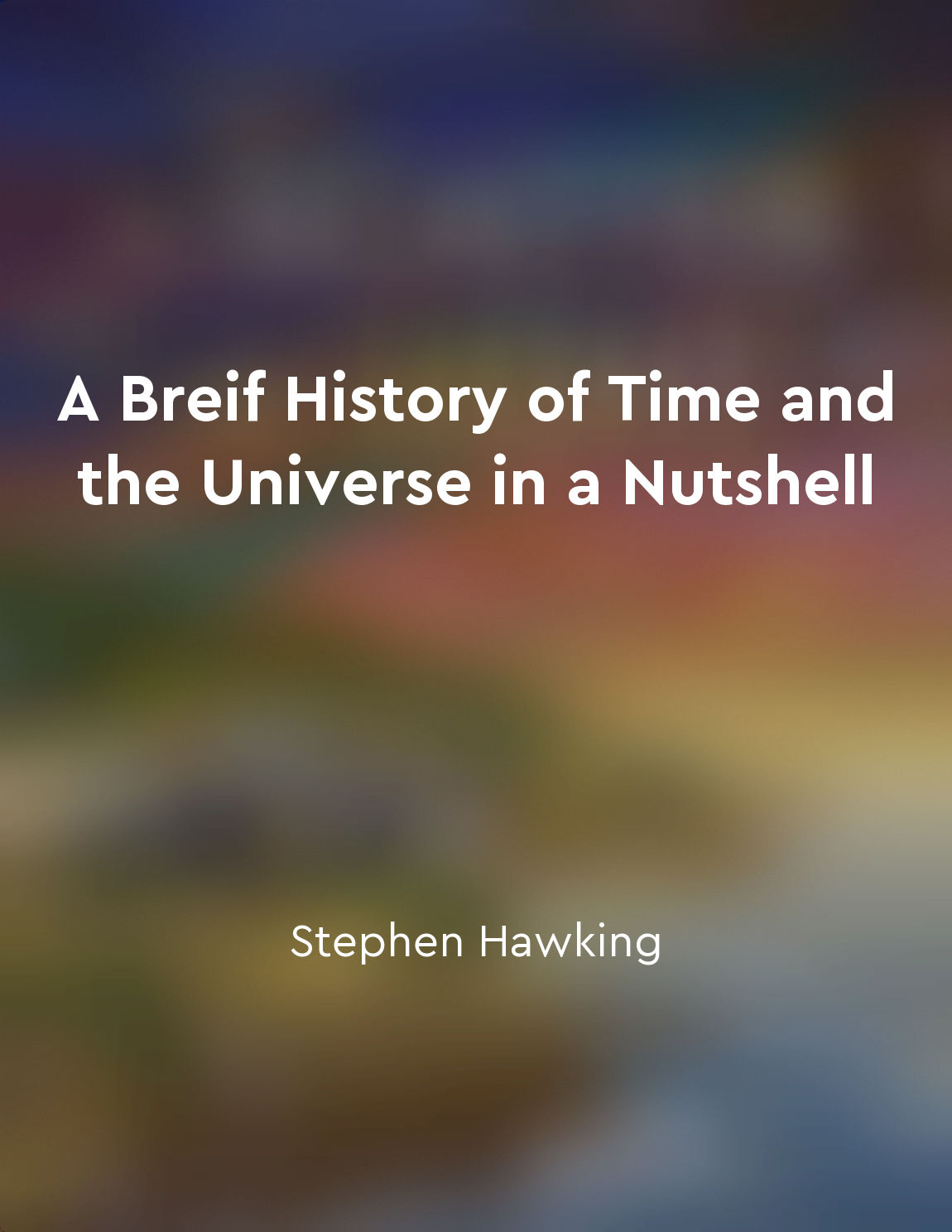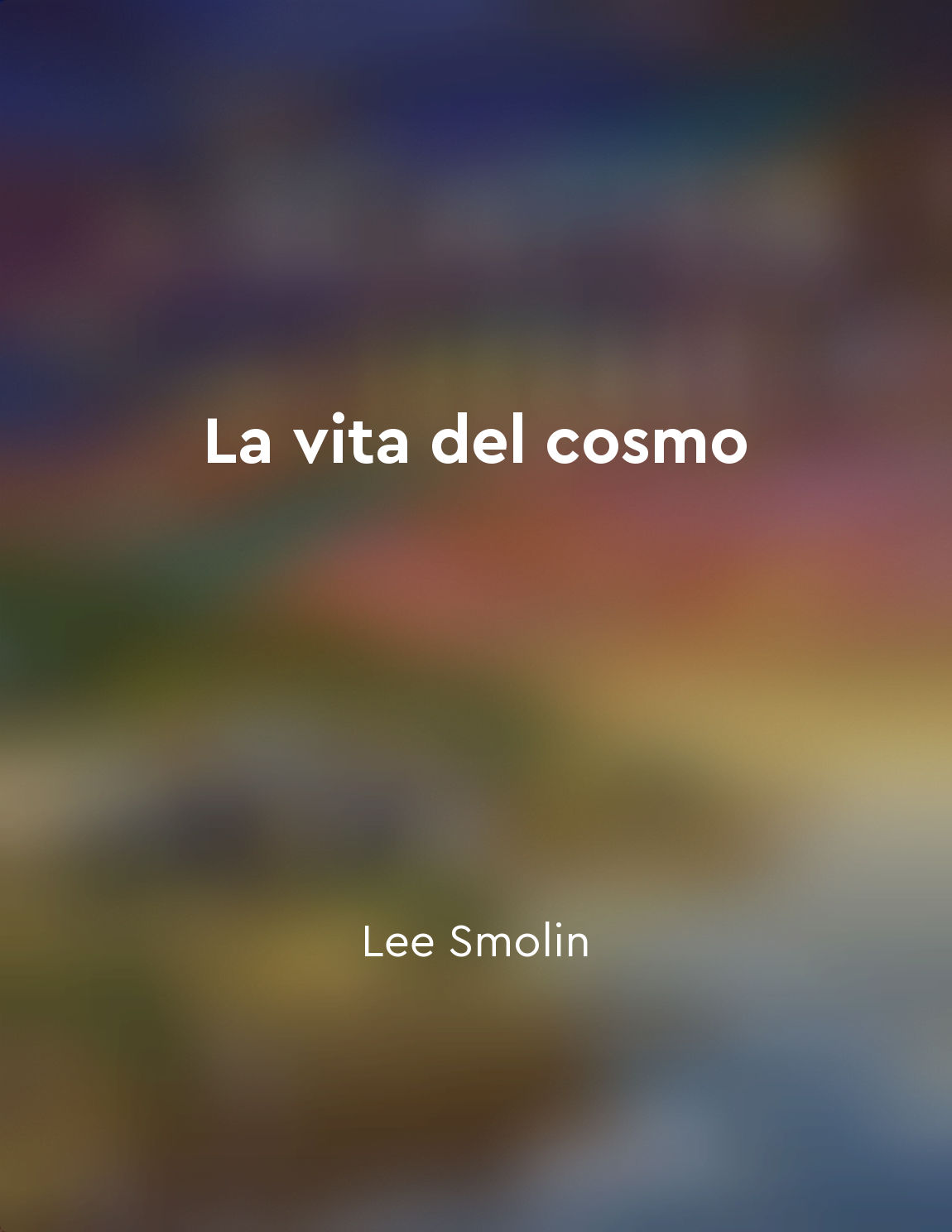Universe began with Big Bang from "summary" of A Breif History of Time and the Universe in a Nutshell by Stephen Hawking
In the early 20th century, scientists were puzzled by the behavior of galaxies in the universe. They observed that galaxies were moving away from each other at great speeds, indicating that the universe was expanding. This led to the idea that if the universe is expanding now, then it must have been smaller in the past. The concept of an expanding universe led scientists back in time to the idea of a singularity – a point of infinite density and temperature – from which the universe began. This singularity marked the beginning of time itself. It was an event of such immense energy and heat that the laws of physics, as we know them, break down. This event is what we now call the Big Bang. It was not an explosion in a particular place in space, but rather the sudden appearance and rapid expansion of space itself. The universe has been expanding and cooling ever since, giving rise to the galaxies, stars, planets, and ultimately, life as we know it. The Big Bang theory is supported by various lines of evidence, such as the observed redshift of distant galaxies, the cosmic microwave background radiation, and the abundance of light elements in the universe. These pieces of evidence all point to a universe that began in a hot, dense state and has been evolving ever since. While the Big Bang theory has been incredibly successful in explaining the large-scale structure of the universe, it still leaves many questions unanswered, such as what came before the Big Bang, or what caused it to happen in the first place. These are mysteries that continue to puzzle scientists and drive further research and exploration in the field of cosmology.Similar Posts
Planets orbit around the sun
In our vast universe, the planets move in a harmonious dance around a central fiery star - the sun. This celestial waltz is a s...

Time is not absolute
In our everyday experience, time seems to flow smoothly from past to present to future, ticking away consistently. However, acc...
Explanation for the expansion and acceleration of the universe
The discovery that the universe is not only expanding but also accelerating in its expansion has been one of the most surprisin...

Unified theory of everything sought
The ultimate goal of physics is to find a single theory that will unify all the laws of the universe. This theory, known as the...
Gene editing has potential dangers
Gene editing has the potential to revolutionize medicine by allowing us to correct genetic mutations that cause diseases. Howev...
Patterns emerge
When we look at the universe, we see chaos. Stars explode, galaxies collide, and asteroids hurtle through space. There seems to...
Cosmology
Cosmology is the scientific study of the origin, evolution, and eventual fate of the universe. It involves asking questions abo...
The waveparticle duality of light and matter is a fundamental concept in quantum mechanics
The waveparticle duality of light and matter is a fundamental concept in quantum mechanics. This concept suggests that both lig...
Testing predictions of cyclical theory through observations
The cyclical theory posits that the universe undergoes an endless cycle of expansion and contraction, with new big bangs occurr...

Black holes play a crucial role in the universe
Black holes are not mere oddities in the universe; they are fundamental players in its drama. These mysterious entities are bor...
